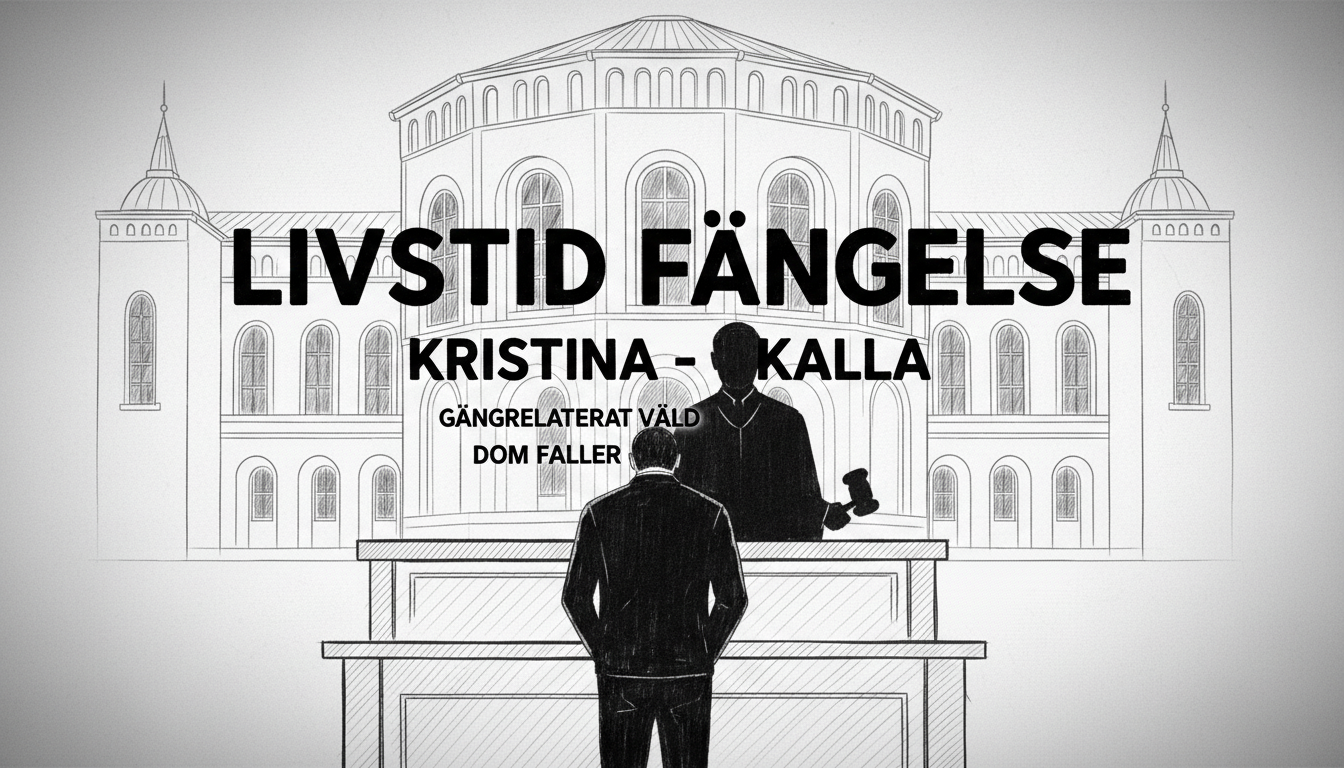A Swedish court has sentenced a 41-year-old man to life imprisonment for the murder of 63-year-old Kristina in her Akalla home. The shooting occurred on October 22 in northern Stockholm. Prosecutors described the killing as a contract hit for a criminal network.
The court found the man guilty of shooting Kristina multiple times in the head. He also faced charges for attempted murder of another mother in the area. Court documents reveal the attack involved careful planning and multiple gunshots.
The presiding judge stated the circumstances were so aggravated that only a life sentence could be considered. He noted the murder followed planning and involved several shots fired at the woman, with two striking her head directly.
Two accomplices received substantial prison sentences for their roles. A 31-year-old woman received 11 years and 10 months for assisting the murder and attempted murder. She made a misleading emergency call and purchased clothing for the shooter on the crime day. A 52-year-old man who provided the murder weapon and acted as driver received 13 years and 10 months for the same charges.
Evidence presented included recorded conversations between the shooter and instigator, surveillance footage, and intercepted phone calls. The shooter initially confessed to the killing in an Instagram post that he quickly deleted. He later pleaded guilty to Kristina's murder at the start of the trial.
Court documents indicate the shooter visited six different addresses on the crime day, knocking on doors while carrying a binder. The murder appears connected to gang conflicts involving the victims' children. Both murdered Kristina and the intended second target had sons who were friends.
This case highlights Sweden's ongoing challenges with gang-related violence and contract killings. Life sentences remain relatively rare in the Swedish justice system, reserved for the most severe crimes. The extended sentences for accomplices signal courts are taking a tougher stance on those supporting organized crime.
The case represents another example of how gang conflicts increasingly impact ordinary residential areas. Akalla, a suburb northwest of Stockholm, has seen several gang-related incidents in recent years. Such cases put pressure on authorities to address both organized crime and its effects on community safety.

